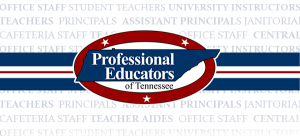Welcome to the inaugural year of Governor Bill Lee’s Education Freedom Scholarship program, where the administration is already popping confetti and declaring success because—hold onto your hats—every single one of the 20,000 vouchers, each worth a whopping $7,300, has been “reserved.” Sounds great, right? But before we throw a parade, let’s pause and ask: Who’s actually cashing in on this universal voucher law? And is it just a fancy way to hand taxpayer dollars to private schools?
According to the Tennessee Department of Education, over 42,000 eager families from 94 counties applied for these vouchers, with 20,000 ultimately being awarded across 86 counties and 220 private schools. Half were earmarked for families meeting specific income qualifications, while the other half were open to everyone, regardless of their financial situation.
Education Commissioner Lizzette Reynolds described the rollout as “remarkable,” as if she were unveiling the next iPhone. While it’s great to hear that families want more educational options (who doesn’t love choices?), the rollout could benefit from a serious dose of transparency.
Critics from both sides of the political spectrum are scratching their heads at this announcement, wondering if it raises more questions than it answers. The term “reserved” is somewhat vague, leaving us to wonder if those lucky applicants actually got into private schools or if they’re still stuck in public school limbo, where the final decision rests with the schools, not the families. Talk about a twist in the “school choice” story—turns out it’s the private schools that get to exercise the choice.
Then there’s the transparency issue. While 10,000 scholarships were income-restricted, families of four earning up to $173,000 still qualified for the program. And the other half? Open to businesses of all kinds, including those with ample financial resources, and who do not wish to use the voucher or the strings attached to their school.
Now, let’s talk about media requests. WBIR has sent at least six inquiries to the Tennessee Department of Education, asking for interviews about the EFS program, in February, March, June, July, August, and just last month in September. You’d think they were trying to schedule a date with a celebrity! Yet, no luck. This level of secrecy is unacceptable. It’s time to release the information, meet the press regularly, and answer their questions like it’s a game show. Sooner or later, the PR blitz ends, and the actual results of the program become apparent.
Although the data exists, state officials haven’t provided a breakdown by income bracket or county, which could help clarify if wealthier families are benefiting the most. As one sharp observer noted, “If this program is truly serving low- and middle-income families, why not show the numbers?” This lack of transparency creates a cloud of skepticism over the program’s impact on education.
Another big concern is whether these vouchers are actually expanding access to education or just subsidizing private tuition for families already enrolled in private schools. History shows that many voucher recipients often come from families that were already paying for private school. So, will taxpayer dollars flow away from neighborhood schools to fuel this new program?
And let’s not overlook the fact that the Lee administration hasn’t clarified how many qualified applicants were turned away by private schools. Spoiler alert: vouchers don’t guarantee admission! Private schools can reject students for various reasons, including academic performance and behavioral issues. For families hoping for new doors to open, the reality might be a door slamming shut.
Financially, this is a serious taxpayer investment. Estimates suggest Tennessee taxpayers could be on the hook for more than $1 billion over the next five years to keep this program alive. Without more transparent reporting, it’s unclear whether this investment is genuinely improving education or just funneling public money into private hands.
While Gov. Lee and his supporters celebrate what they call a “landmark” program, the carefully prepared press releases, missing data, and unanswered questions point to a different reality—one where the actual winners might not be the students after all. Until the administration provides a comprehensive public account of who benefits from these vouchers and how they are utilized, doubts will persist.
Ultimately, the promise of educational freedom must be paired with transparency and accountability. All students deserve access to a high-quality education, regardless of their background. You can support the EFS program while raising concerns about the lack of transparency. Remember, the next governor will inherit this program, a growing state budget, and possibly a revenue stream that’s starting to dwindle. Priorities matter. What are yours?
##
JC Bowman is the executive director of Professional Educators of Tennessee.











